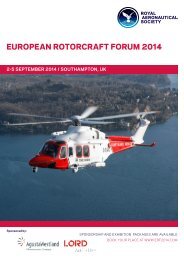PRISON STATISTICS INDIA 2014
PSI-2014
PSI-2014
Create successful ePaper yourself
Turn your PDF publications into a flip-book with our unique Google optimized e-Paper software.
Chapter – 13<br />
Best Practices in the Field Welfare and Rehabilitation of Prison Inmates<br />
The States/UTs have adopted various<br />
schemes for welfare and rehabilitation of<br />
prisoners. For first time, NCRB has made an<br />
effort to compile and publish State/UT-wise<br />
information on best practices in the field of<br />
welfare and rehabilitation of prison inmates.<br />
This will facilitate sharing and emulation of good<br />
practices by Prison Authorities of States/UTs.<br />
The State/UT-wise information collected<br />
on good practices is reproduced as:-<br />
Andhra Pradesh<br />
Various welfare schemes being<br />
executed in the State are:<br />
1. RO Plants have been installed in all the<br />
Prisons of Andhra Pradesh to provide safe<br />
drinking water.<br />
2. As part of providing wholesome and hygienic<br />
food to the prisoners, kitchens of all Central<br />
Prisons and the Prisoners’ Agricultural<br />
Colony are provided with semi-automatic<br />
chapatti making machines.<br />
3. To maintain hygienic conditions in Prisons<br />
hospitals, washing machines are provided to<br />
wash part-worn clothing of prisoners, in all<br />
central prisons, special prison for women<br />
and prisoners’ agricultural colony<br />
4. With a view to reduce the unrest amongst<br />
prisoners and to maintain family ties with<br />
their family and relatives, telephone facility is<br />
provided to the prisoners of Andhra<br />
Pradesh. After introducing the telephone<br />
facility, smuggling of cell phones in to the<br />
prisons has drastically curtailed.<br />
5. Every prisoner on admission is medically<br />
examined and classified according to the<br />
existing rule. Utmost care is being taken in<br />
providing treatment to the sick prisoners. All<br />
central and district jails have been provided<br />
with in –house hospitals with proper medical<br />
staff.<br />
6. Dietary articles are being supplied as per jail<br />
manual. Varieties of breakfast are also<br />
being provided. Special diet is also supplied<br />
to the old age women prisoners.<br />
7. Literacy programmes are also being<br />
conducted to make the illiterate prisoners<br />
read and write. Besides book distribution<br />
centres are also opened with the help of<br />
NGOs etc., to enrich prisoners knowledge by<br />
providing new papers, various books etc.<br />
8. Prisoners are encouraged to pursue their<br />
education through Open School System and<br />
Open University up to Degree and PG Level.<br />
9. Prisoners are being trained in vocational<br />
trades like masonry, plumbing, house-wiring<br />
and certificates are being issued to those<br />
who have completed the course.<br />
10. TVs and games facilities like caroms, shuttle<br />
etc. have been provided for recreation of the<br />
prisoners.<br />
11. With a view to ensure proper sanitation and<br />
hygiene in prisons, bathrooms are provided<br />
at the ratio of 1:10. fans, tube lights and<br />
adequate ventilation have been provided at<br />
living accommodation i.e. cell and<br />
dormitories. At central prisons sewerage<br />
treatment plants have been constructed.<br />
Various rehabilitation schemes being<br />
executed in the State are:-<br />
1. As part of rehabilitation, various skills are<br />
being imparted to the prisoners to help them<br />
in getting reintegrated into society after their<br />
release. In order to achieve these targets,<br />
the industrial units of steel furniture, durries,<br />
weaving, book binding, dyeing, black and<br />
scented phenyl, tailoring, printing press,<br />
DTP, bakery unit, pillows, detergent and<br />
toilet soaps, coir products, cement and flyash<br />
bricks making have been established in<br />
Prisons.<br />
2. To engage the uneducated and agricultural<br />
background prisoners, more<br />
agriculture/horticultural activities are being<br />
taken up in prisoners agricultural colony and<br />
semi open prisons.<br />
3. Petrol bunks are being maintained with the<br />
co-ordination of IOCL and semi open<br />
prisoners are working in the petrol Bunks<br />
4. Various Memorandum of Understanding<br />
(MOUs) were executed with different unit<br />
proposers under Private Public<br />
Partnership(PPP) like cultivation of alfalfa,<br />
moringa and kalmegh herhs at PAC<br />
Ananthapur by M/s Himalaya Drug<br />
Prison Statistics India-<strong>2014</strong> 167



